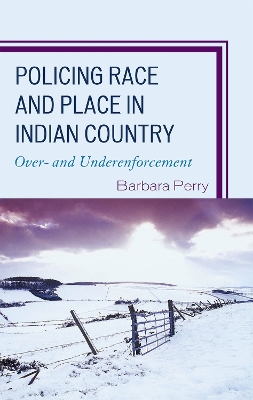Critical Perspectives on Crime and Inequality
1 total work
This book seeks to address a significant void in the scholarship on policing Native American communities. It is the first book to explore Native Americans' perspectives on the ways in which Native American communities—especially those in and around reservations—are both over–and underpoliced in ways that perpetuate both the criminalization and the victimization of Native Americans as nations and as individuals. Drawing upon a series of interviews conducted with 278 Native Americans from seven states, Policing Race and Place in Indian Country uncovers patterns of hate crime against Native Americans as well as a general dissatisfaction with the nature of law enforcement in their communities. Participants reported activities ranging from willful blindness to Native American victimization at one extreme, to overt forms of police harassment and violence at the other. What emerges from these descriptions is the recognition that the patterns observed by the participants of the study are an extension of a lengthy history of systemic racism against Native Americans. Policing Race and Place in Indian Country is one of the first books to address the policing of Native American communities. While there are several studies that investigate the racialized nature and context of policing, most only refer to Native Americans in passing. By focusing solely on the Native American community, the book is appealing to scholars writing on race and policing or criminal justice.
